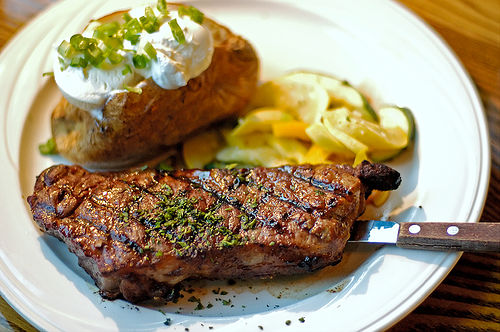Does Drinking on an Empty Stomach Lead to Hangovers?

This is one of the oldest pieces of advice: Eat before you drink. Don't drink on an empty stomach. By and large, it's true, and there is a best way to do it.
The Science:
 After you chomp down on all your food it first ends up in the stomach. The stomach is an expandable pouch that will normally hold about 1 liter of food, but will sometimes hold double or even triple that (like it did on Thanksgiving). It secretes various digestive enzymes to break down the food before it moves on to the small intestine.
After you chomp down on all your food it first ends up in the stomach. The stomach is an expandable pouch that will normally hold about 1 liter of food, but will sometimes hold double or even triple that (like it did on Thanksgiving). It secretes various digestive enzymes to break down the food before it moves on to the small intestine.
After the stomach, the food travels to the small intestine. The small intestine is a long, thin tube-like organ bunched up underneath the stomach with lots and lots of surface area, and is the primary place where your body absorbs nutrients from your food. The average length is over 20 feet and the diameter is about 1 inch.
The stomach is built to hold and the small intestine is built to absorb. That's why the small intestine has many many times more surface area than the stomach.
Why this is important:
You probably already knew that when drinking on an empty stomach the alcohol will hit you faster. The faster the alcohol hits you, the harder it will be to avoid a hangover. The reason it hits you faster is that the alcohol quickly passes through the empty stomach (where relatively little will get absorbed) and goes immediately to the small intestine (which absorbs things very quickly). Hence the advice to avoid drinking on an empty stomach. You want to have food already in your small intestine, so the alcohol has to wait patiently in the stomach, and gets absorbed slower.
Best Practices:
Certain foods are heartier than others, and will do a better job at filling your stomach. The best foods for this job are fatty, meaty dishes (sorry vegetarians). The fats can also help protect your stomach lining, but that will be another post. So when thinking about pre-drinking foods, the less refined and higher the protein the better. Whole grains are better than white grains, beans and legumes are good, oily and fatty foods are great, and probably the best food of all is a great big steak. Vegetarians could try hearty oily dishes that are rich in fats and fibers, with ingredients like olive oil, legumes, avocado, nuts and other healthy fats.


